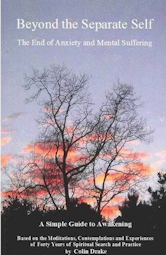This chapter discusses purpose and meaning, showing how identifying with our deeper level of pure awareness leads to enjoying life to the maximum.
In this chapter I shall discuss Hindu cosmology and its divine ‘plan’, although ‘play’ would be more appropriate. I shall then consider whether this makes life meaningful. I will attempt to show that when one engages totally in this ‘play’, life becomes so enjoyable and pleasurable that no other meaning or purpose is necessary. Finally, I shall consider some objections that could be raised for such a view and offer counters to them.
For me the most plausible divine plan/purpose rests in Hindu cosmology. In this, Brahman (the totality of cosmic power, energy, consciousness and awareness) rests as a single point before the creation of the universe. Compare this to the ‘singularity’ which modern physics/astronomy posits existed before the ‘big bang’. From Brahman is manifested the universe and he pervades it, or dwells in it as it. In The Gospel of Ramakrishna we find:
After the creation the primal power dwells in the universe itself. In the Vedas creation is likened to the spider and its web. The spider brings the web out of itself and then remains in it. God is the container of the universe and also what is contained in it.
Brahman is considered to have two aspects, the male which is the witnessing/awareness aspect (consciousness at rest) and the female which is the aspect of creation, preservation and destruction (consciousness in motion). This manifestation of the universe occurred, according to modern science, as the ‘big bang’. The universe (manifestation) expands, continually evolving and growing until the energy (matter) becomes so ‘spread out’ that it returns to the aware nothingness (Brahman) from whence it came. For energy is (motion) vibration and as the waves are stretched the peaks/troughs become smaller and smaller until all returns to stillness.
This explains the cosmology, but what of plan or purpose? According to the Hindus this is all the ‘play’ of Brahman in the female aspect called the ‘Divine Mother’, which is purely for her enjoyment:
The Divine Mother is always playful and sportive. The universe is her play. … She wants to continue playing with her created beings. … Her pleasure is in continuing the game.
Before we can consider whether this makes our lives as a human beings meaningful, we have to consider what we really are. Are we just puppets who are being played with by some divine force, or manifestations of that force participating fully in the ‘play’? According to the Hindus Brahman is ‘the container of the universe and also what is contained in it’. Thus we are, in essence, also ‘That’ (Brahman) and able to participate fully in the ‘play’.
However, this is not possible whist we consider ourselves as separate individual beings trying to make our way in an alien world. This is mainly because this stops us ‘being’ the present moment and engaging totally in the ‘play’. Consider the play of children who totally lose themselves in the game and thus participate fully with maximum enjoyment. As long as we consider ourselves to be a separate ego we are always trying to better ourselves, achieve more (knowledge, possessions, power, fame etc.), polish our self-image and generally build ourselves up. This tends to make us live in the future and stops us living fully in the present moment. The other side of this coin is to live in regret as to what might have been, self-loathing, melancholy or yearning for the past. This also stops us seeing ‘what is’ here and now, either by making us live in the past or by the mind spinning on our failures and lack of self-worth.
I realize that this goes against modern western thought which finds meaning in achievement/purpose rather than the sheer enjoyment of ‘what is’ at any given moment. Consider the following quotes from The Meaning of Life:
What counts is that one should be able to begin a new task, a new castle, a new bubble. (Richard Taylor)
In so far as I have carved out my being in the human world, I go on existing in the future. (Hazel Barnes)
I am not suggesting that having and achieving goals is not a source of great satisfaction, but it does not compare to the bliss evoked when one comes across a stunning sunset which is seen with a still mind, or when you are at a concert and you hear the music so deeply that you ‘become’ the music. This occurs when you totally ‘lose yourself’ in the manifestation. The point here is that the world is a wonderful place when seen ‘as it is’ with a still mind and no reference to a separate individual seer. In other words when it is seen in its actual reality and not through the narrow filter of the minds likes/dislikes, judgements and opinions. I can offer no proof of this apart from the fact that it is my experience and has also been pointed to by many mystics, past and present. This can, in fact, only beknown through experience and not through reason and the intellect.
Why should this be the case? Our deeper level of pure awareness, an aspect of Brahman, is who we ‘are’ at a deeper level than mind/body. Our mind/bodies are the instruments with which It (as we) senses and ‘plays in’ Its creation. Thus when you filter any sensation through the mind you are ‘colouring’ it with something less (the mind’s likes/dislikes, opinions and judgements) than the pure awareness in which it appears, and so masking its actual reality.
Finally, consider the problems that this view encounters. The first, and for the philosopher the main problem, is that it cannot be proved by argument and reason. In fact these are the tools which obscure it. It has to be experienced, but for this you have to know, existentially, that you are not separate from ‘That’, the totality of being. Unfortunately, this knowledge is impossible to obtain as long as you identify with the mind/body or as a separate individual. In this state one overlooks the pure joy and pleasure of living moment to moment and tends to feel that:
Whenever we are…directed back to existence itself we are overtaken by its worthlessness and vanity and this is … called boredom. (Schopenhauer)
This is because we are identifying with our rational mind and using it to judge every moment, rather than just ‘being’ with a still mind and experiencing the actual reality of existence.
Albert Camus unknowingly puts his finger on the exact problem when he says:
Thinking of the future, establishing aims for oneself, having preferences … presupposes a belief in freedom. … But that freedom to ‘be’ which alone can serve as a basis for truth does not exist.
The point is that pure ‘being’ can only be experienced when one is not ‘thinking of the future, establishing aims and having preferences’; the two states are mutually exclusive, the second preventing the first!
Summing up: when one lives moment to moment, identified with the ‘totality of being’, one is able to engage fully in the ‘Divine Play’. This makes life light, not heavy, and thoroughly enjoyable not requiring any extra meaning or purpose. It is only when identified as a separate individual, living in an alien world, that such meaning or purpose seems necessary.
S.Nikhilananda, ‘The Gospel of Sri Ramakrishna’, 1942, Chennai, p. 135
S.Nikhilananda, ‘The Gospel of Sri Ramakrishna’, 1942, Chennai, p. 136
E. D. Klemke, The Meaning of Life, 2000, Oxford, p. 175
|







